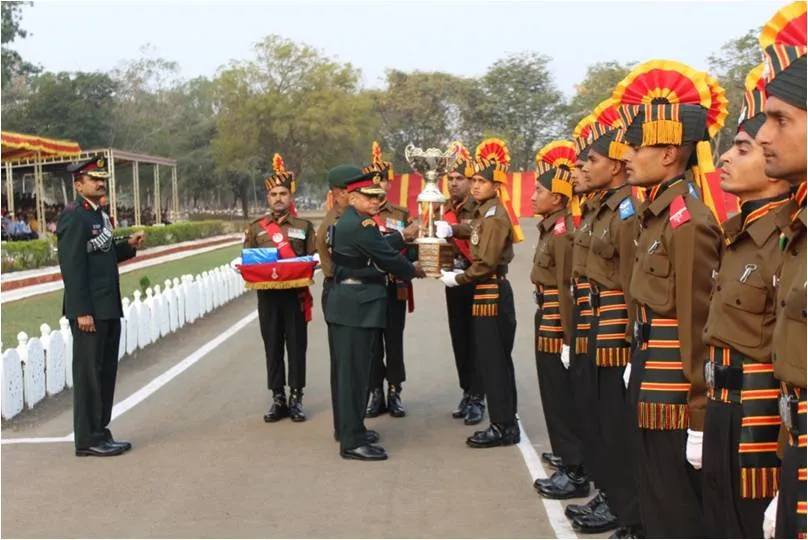One way to understand our current military justice system is to read the sections in the Army Act of 1950 dealing with “offences in relation to the enemy and punishable with death” relating to warlike situations. Samples: “shamefully” abandoning a garrison or a defence position, casting away arms, cowardice, assisting the enemy, putting up the white flag of surrender, spreading rumours that may create alarm, a sentry who “sleeps upon his post or is intoxicated” in times of war.
Independent India has got no soldier executed; that does
not mean we have not had cowardice or desertion in times of war, or sentries who fell asleep. All it does is to tell us how antiquated the law is. The colonial ring of its language, and some provisions, date many of its provisions to the 1911 Indian Army Act.
There is something inherently authoritarian about the military justice system because the military is a kind of dictatorship functioning within a democracy. Given the requirements of military discipline and the preservation of good order, the system has felt a need to create an authoritarian regime where authority flows from the top to the bottom. Also, questioning an order, or not following the draconian rules, can lead to punishment that would be considered severe by the regular laws of the country.
Good order and discipline are not just about war time, but relate to the daily life of an army man required to keep the military’s fighting edge keen at all times. For this, there are summary procedures for commanding officers of units to punish jawans up to the rank of a hawaldar. Death sentence may not visit you if you desert, mutiny, steal, strike or threaten superiors in peace time, but you can still get 14 years RI and be cashiered, which means no retirement benefits.
Read Also | < style="color: #960f0f">Merit must reign in the armed forces
There are other problematic provisions, such as “unbecoming” or “disgraceful conduct” of officers and junior commissioned officers, not too clearly defined, but venture into areas that go against the moral ethos of the armed forces and their sense of honour. Actually, unlike the police or other state instruments, army personnel can be punished for cruelty to civilians, defiling religious places and even infidelity.
The aim of the system is to provide a quick, but fair procedure. Safeguards are built in, but the very nature of the system raises questions. The military courts, or the courts martial, comprise benches of five or three officers with no legal training—even the prosecutor and defence councils are line officers. General courts martial usually have a judge advocate who is supposed to advise the court on the finer points of the law.
In essence, the military is its own police, forensic department, judge and jury, and this is the biggest weakness of the system. While the summary court-martial is a useful means of maintaining good order, when it comes to more serious crimes, collecting evidence, its presentation and consideration by a non-specialist group can be problematic. The idea that peers are the best judges goes back to the European notion of a jury trial. In India, the system was abolished after a jury acquitted a naval commander of a 1959 murder of a businessman. The Bombay High Court overturned the verdict and tried and convicted him through a bench.
Over time, the infirmities of the system have been apparent, especially since it has no built-in right to appeal and, given its draconian nature, bears instances of its misuse. To deal with this, the government established the Armed Forces Tribunals (AFTs) in 2007. The members here are mixed—senior retired judges and senior retired military officers.
Read Also | < style="color: #960f0f">Brewing storm in a teacup
The big problem, however, is that the AFTs come under the ministry of defence, instead of the law ministry. So the appeals system is run by the very outfit against whom the appeals are usually entered. The key powers to have their judgements and orders implemented have been withheld from the Tribunals, and their rulings are simply ignored, if found inconvenient.
Separating the military from society has often been seen as a means of enhancing the military effectiveness of the forces. The Army Act was a manifestation of this. But times have changed, and so have the very nature of warfare and the context of the old rules. Getting soldiers to follow orders must be accompanied by a culture where not only illegal orders are challenged, but instead draconian discipline to get them to follow orders, the officers depend on their self-esteem as professionals and their sense of being part of a team.
There are reports saying the government intends to provide the legal teeth to the tribunals. The MoD and the three services are not very happy about this, but the time has come to bring the military justice system in line with the mores of contemporary society.
This commentary was published in Outlook Magazine
The views expressed above belong to the author(s). ORF research and analyses now available on Telegram! Click here to access our curated content — blogs, longforms and interviews.

